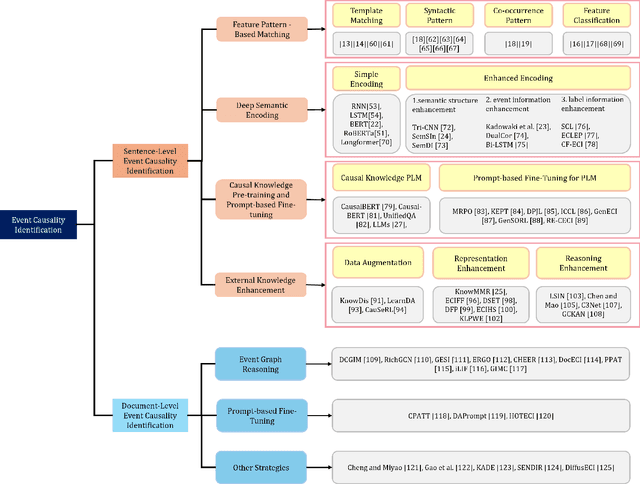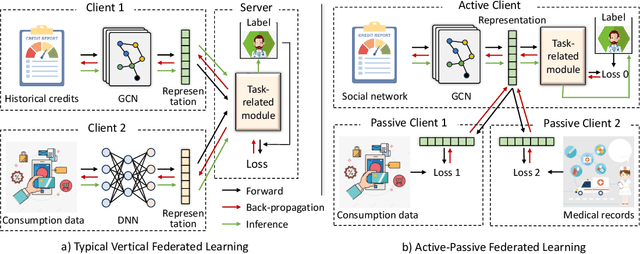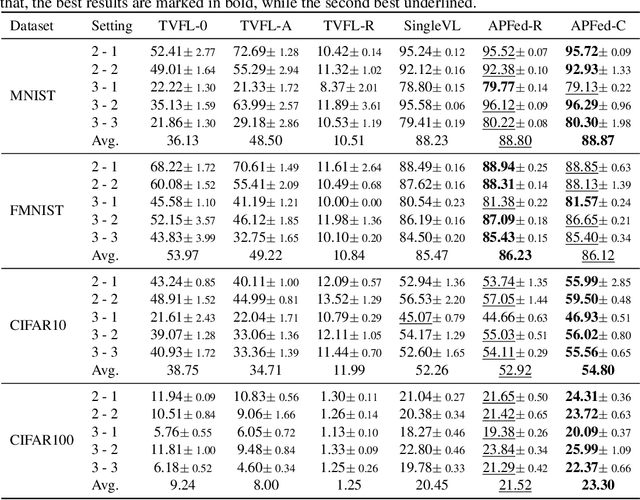Xingchen Hu
Deep Temporal Graph Clustering: A Comprehensive Benchmark and Datasets
Jan 19, 2026Abstract:Temporal Graph Clustering (TGC) is a new task with little attention, focusing on node clustering in temporal graphs. Compared with existing static graph clustering, it can find the balance between time requirement and space requirement (Time-Space Balance) through the interaction sequence-based batch-processing pattern. However, there are two major challenges that hinder the development of TGC, i.e., inapplicable clustering techniques and inapplicable datasets. To address these challenges, we propose a comprehensive benchmark, called BenchTGC. Specially, we design a BenchTGC Framework to illustrate the paradigm of temporal graph clustering and improve existing clustering techniques to fit temporal graphs. In addition, we also discuss problems with public temporal graph datasets and develop multiple datasets suitable for TGC task, called BenchTGC Datasets. According to extensive experiments, we not only verify the advantages of BenchTGC, but also demonstrate the necessity and importance of TGC task. We wish to point out that the dynamically changing and complex scenarios in real world are the foundation of temporal graph clustering. The code and data is available at: https://github.com/MGitHubL/BenchTGC.
Zero-Shot Event Causality Identification via Multi-source Evidence Fuzzy Aggregation with Large Language Models
Jun 06, 2025



Abstract:Event Causality Identification (ECI) aims to detect causal relationships between events in textual contexts. Existing ECI models predominantly rely on supervised methodologies, suffering from dependence on large-scale annotated data. Although Large Language Models (LLMs) enable zero-shot ECI, they are prone to causal hallucination-erroneously establishing spurious causal links. To address these challenges, we propose MEFA, a novel zero-shot framework based on Multi-source Evidence Fuzzy Aggregation. First, we decompose causality reasoning into three main tasks (temporality determination, necessity analysis, and sufficiency verification) complemented by three auxiliary tasks. Second, leveraging meticulously designed prompts, we guide LLMs to generate uncertain responses and deterministic outputs. Finally, we quantify LLM's responses of sub-tasks and employ fuzzy aggregation to integrate these evidence for causality scoring and causality determination. Extensive experiments on three benchmarks demonstrate that MEFA outperforms second-best unsupervised baselines by 6.2% in F1-score and 9.3% in precision, while significantly reducing hallucination-induced errors. In-depth analysis verify the effectiveness of task decomposition and the superiority of fuzzy aggregation.
A Survey of Event Causality Identification: Principles, Taxonomy, Challenges, and Assessment
Nov 15, 2024



Abstract:Event Causality Identification (ECI) has become a crucial task in Natural Language Processing (NLP), aimed at automatically extracting causalities from textual data. In this survey, we systematically address the foundational principles, technical frameworks, and challenges of ECI, offering a comprehensive taxonomy to categorize and clarify current research methodologies, as well as a quantitative assessment of existing models. We first establish a conceptual framework for ECI, outlining key definitions, problem formulations, and evaluation standards. Our taxonomy classifies ECI methods according to the two primary tasks of sentence-level (SECI) and document-level (DECI) event causality identification. For SECI, we examine feature pattern-based matching, deep semantic encoding, causal knowledge pre-training and prompt-based fine-tuning, and external knowledge enhancement methods. For DECI, we highlight approaches focused on event graph reasoning and prompt-based techniques to address the complexity of cross-sentence causal inference. Additionally, we analyze the strengths, limitations, and open challenges of each approach. We further conduct an extensive quantitative evaluation of various ECI methods on two benchmark datasets. Finally, we explore future research directions, highlighting promising pathways to overcome current limitations and broaden ECI applications.
Active-Passive Federated Learning for Vertically Partitioned Multi-view Data
Sep 06, 2024



Abstract:Vertical federated learning is a natural and elegant approach to integrate multi-view data vertically partitioned across devices (clients) while preserving their privacies. Apart from the model training, existing methods requires the collaboration of all clients in the model inference. However, the model inference is probably maintained for service in a long time, while the collaboration, especially when the clients belong to different organizations, is unpredictable in real-world scenarios, such as concellation of contract, network unavailablity, etc., resulting in the failure of them. To address this issue, we, at the first attempt, propose a flexible Active-Passive Federated learning (APFed) framework. Specifically, the active client is the initiator of a learning task and responsible to build the complete model, while the passive clients only serve as assistants. Once the model built, the active client can make inference independently. In addition, we instance the APFed framework into two classification methods with employing the reconstruction loss and the contrastive loss on passive clients, respectively. Meanwhile, the two methods are tested in a set of experiments and achieves desired results, validating their effectiveness.
 Add to Chrome
Add to Chrome Add to Firefox
Add to Firefox Add to Edge
Add to Edge